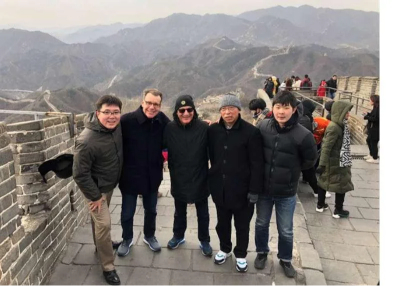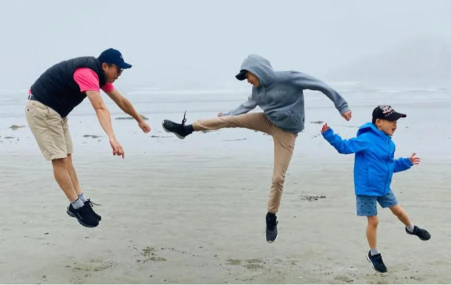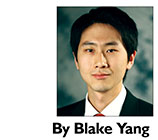
IHC talks to Tianfu Liu, Vice President and Chief Counsel, Asia Pacific for Cabot Corporation, about his journey from private practice to glssobal legal strategist

Could you share a little about your journey in your career so far and how you ended up in your current role? We’re especially curious about your additional role in business development!
I studied law at CUPL in Beijing, McGill in Montreal and Penn in Philly. Prior to Cabot, I was a private practitioner between 2003 and 2010, first and briefly with MoFo in its then newly established Shanghai office and later with Freshfields Bruckhaus Deringer. At Freshfields, my practice covered cross border mergers and acquisitions, securities and FDI, with a focus on advising multinational investors in the financial services and real estate sectors on their establishment or expansion in China. In 2010, I joined Cabot as its China GC. My role was subsequently expanded in 2015 to cover Asia Pacific, and in 2019 to provide legal oversight to Cabot’s global Reinforcement Materials Segment, its largest business division operating in Argentina, Brazil, Canada, China, Colombia, the Czech Republic, France, Indonesia, Italy, Japan, Mexico, the Netherlands and the U.S.
Since the beginning of 2022, I took on the role of Vice President, Strategic Business Development, AP Region in addition to my legal responsibilities for the AP region. In my newest capacity, I execute the company’s strategic projects in the AP region and manage their full lifecycle from market research, prospects identification, target screening and initial engagement, to modelling and valuation, due diligence, signing and closing, and eventually integration.
Could you provide our readers with an overview of your team’s size and structure?
In Asia Pacific, we have substantial business operations in Greater China, Japan, Korea, Singapore, India, Indonesia and Malaysia. We also have operations in the Middle East which is managed as part of the EMEA Region. Our AP legal team consists of three lawyers and one paralegal, stationed in China and India, respectively. In Indonesia where we have a sub-regional headquarters and a sizable manufacturing operation, we use a secondment lawyer from our local counsel to support us on local law issues. I also manage two team members in my strategic business development role.

Team Cabot celebrates a successful business sale with a memorable group photo atop the Great Wall.
At the recent Shanghai In-House Community Congress, you delivered insights on strategic integration and collaboration for in-house legal teams with other departments. From your perspective, what key strategies and best practices would you recommend for a general counsel aiming to excel in this area?
First and foremost, stay close to the business (and other internal clients) to understand their priorities and provide advice that is practical and relevant to their needs. This can be achieved through regular participation in business updates or management meetings, corridor conversations with business and functional leaders, etc. Second, strike a balance between being useful/flexible and being principled. A significant imbalance does not get you very far. Third, find your allies. Functions like finance, tax, HR, SH&ES (safety, health, environment and sustainability), product stewardship, etc. are natural candidates for alliance. Teaming up with allies on legal or compliance initiatives that are burdensome on the business (such as the enforcement of contract review procedures) will always make things easier and more effective.
Can you recall a situation during your time as general counsel where you made the decision to oppose a company action, despite anticipating potential contention?
After we acquired a local company in China, we found that the target company, prior to acquisition, failed to disclose to its number one customer the change of its production site, which would have required the customer’s re-qualification and approval. Whether or not we should tell the customer about this and risk the loss of a sizable business became a tough question for the business team who were keen to deliver business results. The GM wanted to work on the issue in a “low profile” manner. We escalated the issue to the highest level of the company’s management and decided to voluntarily disclose. The customer accepted our disclosure and re-qualified the new site in a timely fashion, with little impact on our business.

Weekend golf session for Tianfu
When selecting a law firm for outsourcing work, what specific qualities do you prioritise? Could you elaborate on your decision-making process when engaging with external legal partners?
Quality of work, cost, responsiveness and understanding of our business are among the most important qualities I constantly look for in external counsels. Start always with smaller, less critical projects to observe and compare; spend quality time with counsels to help them understand the context of a particular task and the key components of the deliverable.
In today’s fast-paced legal environment, maintaining a healthy work-life balance is paramount. How do you personally prioritise wellbeing amidst the demands of your role as general counsel, and what strategies do you advocate for promoting a healthy work-life balance within your legal team?
Foster a culture of healthy lifestyle through daily conversations, group chats, and team activities. We established a fitness club during the Pandemic. Each member is required to publish his/her daily exercise in a group chat. People who failed to do any exercise for more than 2 days in a given week are obliged to give out a “red pack” in the group chat. I lost about 40 pounds in the last 4 years, thanks to regular weight training and healthy diet, and that had been a huge motivating factor for people around me.

Kicking it with the family
Outside of your professional endeavors, what are some personal passions or hobbies that you enjoy pursuing?
I have been playing golf almost every week for over 10 years. My family enjoys skiing in the winter. Sometimes, I do a bit of cooking at home for my family, or practice Chinese calligraphy. As I think about them, all these hobbies have the power to distract me from the day-to-day routines and keep me focused on something I enjoy doing, alone or with others.
This article is part of the IHC eMagazine June 2024 issue. Click here to read or download the magazine.

















